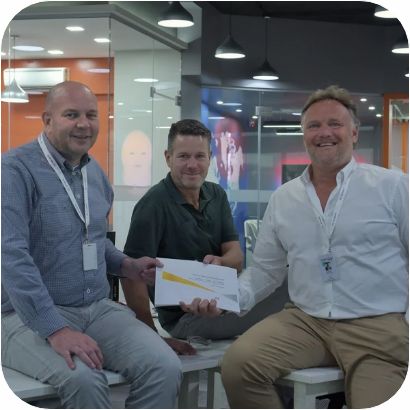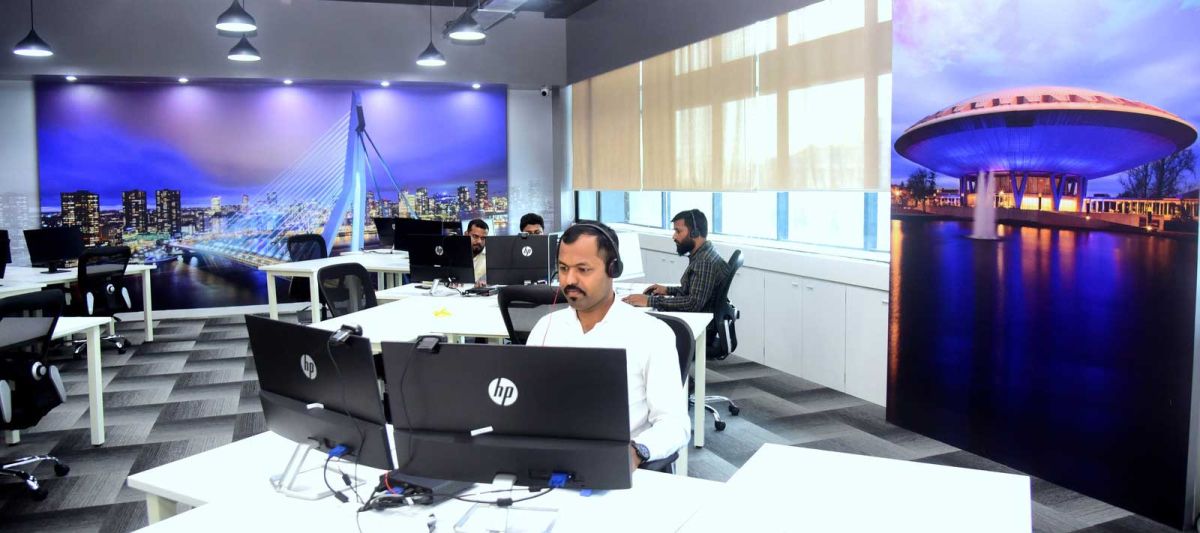- More than 20 years experience
- Complete assessments
- No agency fees

A Conversation with behavioral psychologist Albert Mulder on effective collaboration with intercultural teams
In an increasingly globalized business world, intercultural understanding is essential for successful collaboration. Albert Mulder, a behavioral psychologist and partner at WorldEmp, shares his insights on working with both Dutch and Indian employees.
He highlights the challenges and key success factors for effective intercultural collaboration.
Cultural differences and work ethic in international teams
Studies, such as those by Hofstede and Meyer, reveal significant cultural differences between Dutch and Indian employees. "The Dutch communicate directly and work within a flat organizational structure, while Indians adopt a more hierarchical approach and use more subtle communication," explains Mulder.
These differences impact both work ethic and expectations around work and deadlines. "Dutch employees often adhere to strict working hours and maintain a clear work-life balance, whereas Indian colleagues tend to show greater flexibility in their working hours."
The differences in communication styles require adjustments on both sides. "The Dutch are straightforward, which can sometimes come across as harsh to foreigners, while Indian colleagues communicate more subtly," says Mulder. He advises Dutch companies to take these preferences and the hierarchical nature of Indian work culture into account to avoid misunderstandings.
Leadership and hierarchy
Mulder also observes significant differences in leadership and hierarchical structures. "In the Netherlands, leadership is often characterized by equality and employee input, while in India there is a strong respect for authority and a layered organizational structure."
Dutch managers leading Indian teams are advised to set clear expectations while respecting the existing hierarchy. "It’s important to understand how to navigate the different cultural expectations without completely abandoning your own leadership style," he explains.

“Dutch people focus more on outcomes and assume that the process is clear to everyone. Indian people focus more on the process that leads to those outcomes.”
Free recruitment and 40-70% lower labor costs
In the long term, your company can easily scale up without risk by leveraging a large talent pool in countries with highly qualified professionals.
Tips for Successful Collaboration
Mulder advises companies to create an inclusive work environment that embraces cultural differences. "Understand the cultural background of your employees and adapt your management style accordingly. It can make a world of difference."
He notes that shared celebrations and involving Indian colleagues in challenging projects can enhance team spirit. "In our company, we see daily how successful intercultural collaborations can be. Not making distinctions between Dutch and Indian colleagues contributes to a sense of unity."
Finally: culture as an opportunity in international collaboration
Companies considering working with Indian employees should not see cultural differences as obstacles but as opportunities. "Take any concerns about cultural differences seriously and address them proactively."
By developing strategies that account for different communication styles, cultural differences can even contribute to creative solutions and innovation. "Teams that are culturally diverse and complementary in their approach are often the most successful."
Mulder views working with people from other cultures, especially Indian colleagues, as enriching. "Look at their culture, the scale of their country, and admire the diversity." His final advice for companies? "Manage expectations on both sides and work together to build a culture where everyone feels at home and can contribute to the fullest."

INTERESTED? MORE INFORMATION?
Digital knowledge migrant with WorldEmp
At WorldEmp, we understand the challenges of finding qualified and highly skilled personnel. We offer a unique solution for companies that want to benefit from the advantages of a digital knowledge migrant, without the usual pitfalls. Our approach is based on years of experience and a thorough understanding of both the technological and human aspects of remote work.
Our services include recruiting and selecting highly qualified professionals from around the world. We ensure that each candidate is not only technically skilled but also culturally fits your company. This helps minimize communication issues and maintain strong team cohesion.
Additionally, we provide extensive support in terms of technology and tools. We ensure that your team has access to the best tools for communication and collaboration, and offer training and support to ensure that everyone can use these tools effectively.




